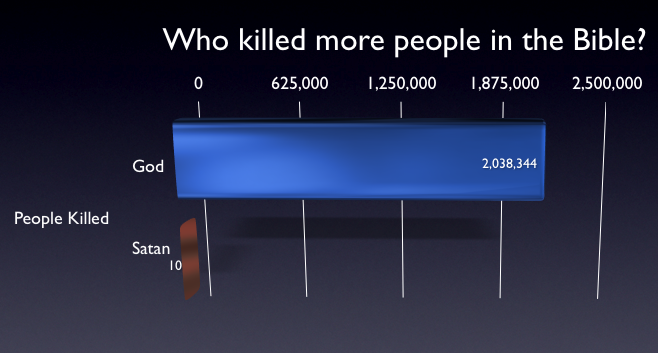With no thought at all, we unflinchingly hurl the most damning insults at God. “Good” Friday may be our most consistent and most unconscionable slap at the Divine. It’s the day we annually reaffirm that a sadistic murder not only is good, it’s an act of God.
I was delighted to see that others are looking at this day through a different lens. A Reuters News Service story this week also explored this tradition. The satirical article imagined an effort by religious leaders to make “Good” Friday better by redirecting the focus from Jesus’s murder to his message of love. Is religion brave enough to make that leap?
Christianity calls sadistic murder an act of love
Evidence abounds that humans have a conflicted value system. Here in America, a so-called “Christian nation,” we unhesitatingly do things to others that we would not want done to us. From the brutalization of the original inhabitants of America to the behavior of current presidential candidates, we fervently support leaders who loudly and proudly reject this core tenet of Jesus’s teachings. Another message, we are one: Whatever you do to the least of my brothers, you also do to me (Matthew 25:40).
Despite that, for 245 years, based on other Biblical passages—among them, Genesis 9:25-27, Ephesians 6:5 and Titus 2:9—those who called themselves Christians enslaved and brutalized select members of the one human family. After slavery was abolished, lynchings were commonplace, especially in the Deep South. This sadistic murder of other human beings was considered sport in the Bible Belt. It was perceived as normal, wholesome family entertainment.
They excused kids from school to watch. Moms prepared a picnic basket. Dads beamed proudly at the rotting remains. Murdering another member of the human family was gratifying, and it was godly.
These macabre rituals of hatred defined our nation, our humanity, and they defined the god we worship. But they were never defined as acts of love—then or now.
Good Friday is probably the only day in human history that sadistic torture is universally embraced as an act of love.

Is it an insult to claim that God “gave” Jesus to be brutally murdered?
“Good” Friday marks the only time that those who desire a close relationship with God express gratitude for the sadistic murder of a someone who reportedly had an extremely close relationship with God.
These good people say they are grateful to God for sending Jesus to “die” for their sins. These same people also claim that they would never want anyone to suffer or be slowly tortured to death for a crime they committed—especially someone they loved. However, they make an exception for the beloved Jesus. As I said, humans have a conflicted value system.
Why do we say that Jesus “died”?
Another human curiosity: We’ve reclassified Jesus’s murder as a mere death, as if he climbed onto the cross, closed his eyes and stopped breathing. But he didn’t simply “die.” He reportedly was brutalized for sins committed by millions of souls who were wearing human body costumes during his incarnation and for billions, including you, who hadn’t yet arrived on the planet and hadn’t committed one sin.
We make sense of that by claiming that God’s ways are mysterious. But only our insulting portrayals of what God is and what God does are mysterious. We play mind games because if we said what we really mean, we’d be horrified.
Consequently, instead of saying what we really mean, “Jesus was brutally murdered for something I did,” we say, “Jesus died for my sins. Hallelujah!” But if we called this act by its real name—a murder—we might question both our own humanity and the veracity of any claim that God solves problems by killing people.
Why do we adorn ourselves with the murder weapon?
We say that God is Love, then contradict ourselves by claiming that God does things Love would not do. We characterize God as sadistic, and we glorify this murder (and ourselves) by wearing replicas of the indisputable murder weapon—the crucifix—as a badge of honor.
We have forgotten what this symbol really represents. We proudly wear crucifixes around our necks. We dangle them from our ears and rear view mirrors. They prominently adorn our places of worship.
We legitimize and worship a murder so heinous that it has to be sugar-coated by saying he merely died. We have become complicit in the sadistic crucifixion of an undeniably innocent person who, according to our beliefs, was performing uplifting work on Earth.
We claim that Jesus agreed to come here and be brutally tortured to death. And we assert this act of barbarism was actually an act of God’s mercy.
Why is the sadistic murder of Jesus attributed to God?
On occasion, often in a Drama Queen Workshop, I will ask why someone believes that God wouldn’t forgive the guilty unless an innocent son was brutally tortured to death. First, they’re startled by the question. Invariably, someone will defend this murder as “God’s sacrifice.” There’s always a person who claims that God didn’t have Jesus killed (although John 3:16 says otherwise); “He” simply didn’t stop the Roman soldiers from heinously murdering “His” only begotten son.
But the lightbulb generally illuminates for most when they hear this story properly described as God’s refusal to forgive the guilty unless an innocent son was brutally tortured to death. They instantly recoil and they do the most remarkable thing: They defend God’s goodness. They insist that God wouldn’t do something like that to anyone, especially Jesus.
I concur with those who disconnect God from the crucifixion because the rationale for this barbarism is wholly ungodly. Why would God do something so unproductive, not to mention inhumane? Jesus’s murder didn’t stop sin and it wasn’t enough of a sacrifice to convince God to forgive our sins. In fact, God allegedly added another caveat: Our sins won’t be forgiven unless we believe that Jesus’s murder personally saved us from an even more sadistic fate.
So what was the “good” outcome here? Jesus’s savage murder didn’t stop sin and it didn’t warrant forgiveness of our sins. It clearly didn’t change the way we treat each other. We still don’t love others as ourselves or as Jesus loved us.
We don’t have to look as far as Paris, Brussels or Nigeria for proof of that. Any random Donald “Two Corinthians” Trump rally will do. So what did this legendary act of sadism actually accomplish—and why are we grateful for it?
The “Good” Friday message: God is unfair, unreasonable and inhumane
The overriding message of the “Good” Friday story is that there is no difference between God’s behavior and the legendary Satan’s. It teaches us that God loves gratuitous violence and is perversely pleasured by unnecessary human pain. And we believe it.
Beliefs are a choice, and it’s easier to believe than to think about what our beliefs actually mean. Instead of thinking, we choose to believe that God sent Jesus to minister to the minds, bodies and spirits of everyone within walking distance or a donkey ride. His healing message was simple: We are one, God is within, God is the unconditionally loving father of prodigals, we should love everyone and that we should do nothing to someone else that we would not want done to us.
Powerful stuff. But we choose to believe that after three short years of spreading this good news, God abruptly halted Jesus’s ministry and gave him to the barbaric Romans to be sadistically crucified. We choose to worship someone who would do this to Jesus because we absolutely positively believe that God is full of wrath, vengeful, judgmental and solves problems by hurting and killing people. Consequently, we conclude that we need to be “saved” from the despicable and diabolical things that God does.
Our cognitive faculties are impaired when we are frightened. We fail to ask the important and common sense questions. That is by design.
God did not give us the spirit of fear. But someone did, someone who doesn’t want us to ask, “If God is Love, would Love do THAT?
We have chosen to ignore the dark energies on Earth that have successfully made us worship a god who does evil, hurtful things. We have chosen to believe that a sadistic, barbaric act such as crucifixion serves some good purpose. And we have agreed to joyfully embrace and vigorously defend this evil in the holiest of places.
At any time, we can choose to rethink “good”—and rethink God. At any time, we can choose to see the Light—and discover how that changes our lives.




 Shocked? Appalled? Can’t understand why anyone would believe something so preposterous?
Shocked? Appalled? Can’t understand why anyone would believe something so preposterous?